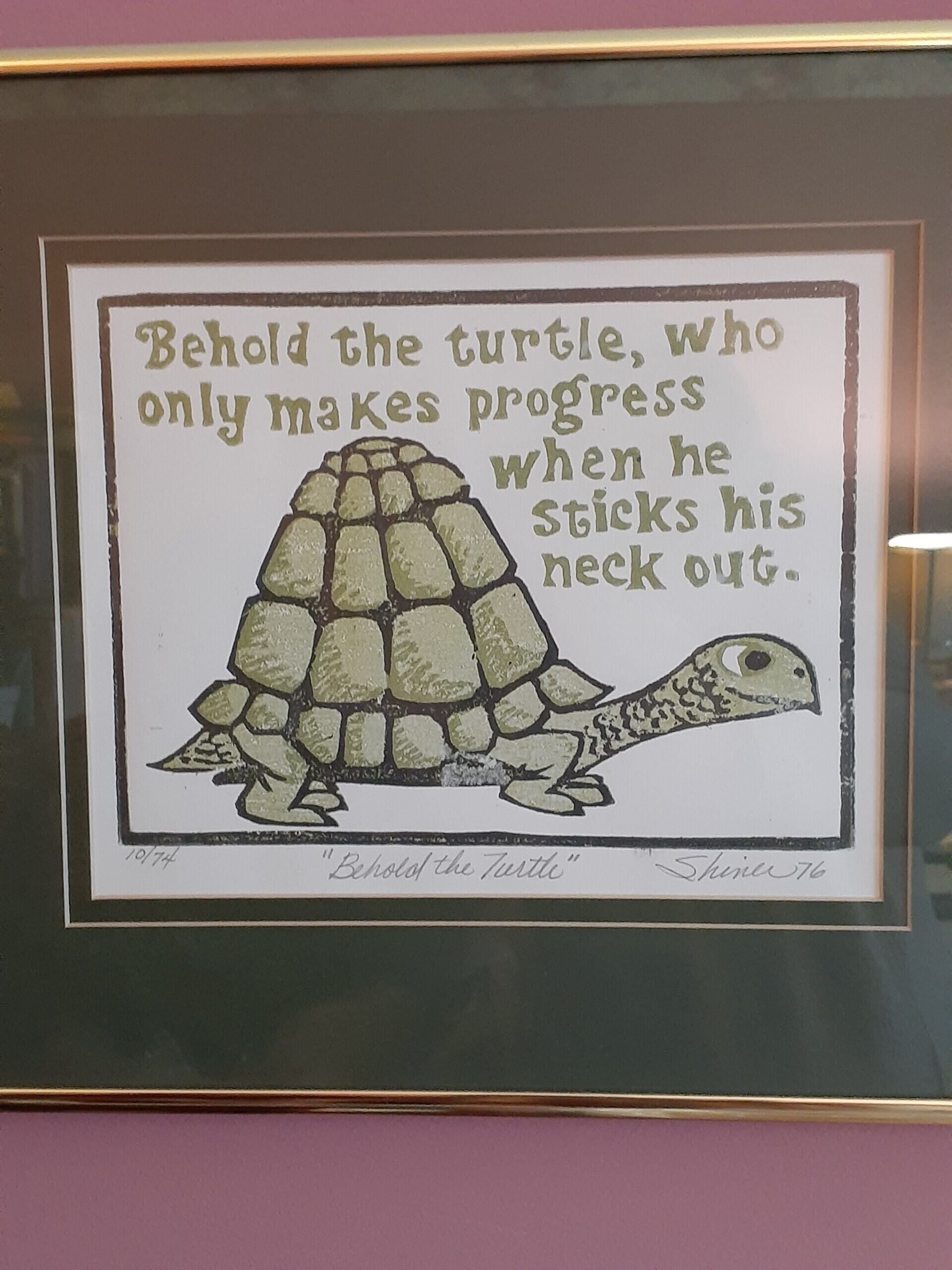A sermon about the things that concern God.

Matthew 20: 1-16
Jonah 3: 10-4: 11
September 24, 2023
Rev. Dr. Galen E. Russell III
“And should I not be concerned about Ninevah, that great city...”
Prayer: Ever faithful God, may we deepen our understandings of who and what you love on our journeys as your servants. In Christ Jesus we pray, Amen.
If we didn’t already know but were asked to guess what kinds of things concern God the most, we might be tempted to guess that God is concerned mostly about us being good people in one way or another. Doing good in the world, right? Living morally and spiritually upright lives. If so, judging by the laborers in the vineyard story and the Jonah story, we would be wrong. Because these two stories show what does concern God, and it ain’t always what concerns us. God’s ways are not our ways.
First, Jonah is ridiculous. I mean he’s a drama king! He gets mad and is sulking because God was merciful to the people of Ninevah. Which is ridiculous. It’s because he sadistically wanted to see them pay for their idolatrous ways. He wanted God not to have the slightest bit of forgiveness even after they turned and made amends. Even after they confessed and apologized.
We see a lot of that today. Some public figure screws up, confesses and apologizes, but still is raked over the coals, or loses their job, or is shunned forever. Lots of times people sadistically love seeing the guilty punished. And lots of times, in our society, people don’t know how to forgive. And plus, that’s boring right? If everyone forgave all the time. We’d have no news. Sorry. I know, I’m being sarcastic.
So God teaches Jonah a lesson about what concerns God. God causes a bush to grow which provides Jonah shade from the hot sun. Which Jonah likes. But just like that, overnight, because of a worm, the bush withers and dies, which makes Jonah mad. And God makes the point— just like the way Jonah is concerned for a measly bush, God is concerned for the wayward people of Ninevah. Even if they aren’t Jewish. Even if they don’t know their right hand from their left. God encourages Jonah to be concerned for what God loves. And a big one is people.
When thinking about Jesus’ parable, I struggle with it sometimes. I know a lot of us do. I mean it’s border line absurd and ridiculous. It offends our work ethic, our capitalistic way of thinking… exact payment for the exact amount of hours worked. That’s the way we see it.
That capitalistic way overlaps into our thinking about heaven, too. So much of today’s understanding of Christianity is that heaven is achieved. Eternal life with God is earned. Heaven is based on what we do here.
Any Tik-Tok users here? Oh… OK. Well, I’m not one. Never used it. But, if you have… maybe you’ve seen Denise the Heaven Receptionist. Anyone? Taryn Smith, is the creator of this Tik Tok program, and she made up “Denise,” who is heaven’s receptionist. Denise takes phone calls and video chats from guest callers here on earth. She responds with wisecracks and skits to get people to laugh.
Taryn Smith’s understanding of God’s heaven favors those who are kind over those who are cruel. One time a guest caller wanted to upgrade to the Angel Premium Plus package, and Denise said that it costs 7,899 good deeds, “and you’re short about seventy-eight ninety-nine good deeds.” When the caller protested saying that he went to church every Sunday, Denise responded, “That’s so great you went every Sunday, but you did make 48 Starbucks baristas cry, and that does ding your credit up here.” What?
Another time Denise refused to upgrade a megachurch pastor who used church donations to finance his private jet. The offense is so obvious that Denise complains to her invisible office sidekick, “That’s one of those calls that could have been an email” (Thomason, Kristen, “Meet Denise, Tik Tok’s Heaven Receptionist, The Christian Century, September 2023, p. 22-23).
I mean it’s funny and a lot of it is facetious, but it reflects what people seem to be concerned about… how we think that God’s love is earned. How we see heaven being granted based on what we do on earth.
But that’s not the way God sees it. Because the thing that concerns God in Jesus’ parable is that everyone who desires it receives God’s grace in full. God loves equality. Whether you come to God early or late in life, God’s generosity is incessant. No matter whether you paid your dues or not. No matter if you were a longtime member of the church or brand new. No matter if you have good or bad history. Or baggage that weighs you down, or if you’re light and free. God’s grace is offered in full. God continues to be faithful even when our obvious faithlessness exists everywhere.
That’s the gospel, friends. God’s grace is offered in full, equally, generously, to all.
Years ago, when I was in my first years in ministry, I was working with Sam, the President of Consistory, thinking about who might be good candidates from the congregation to serve on Consistory. He mentioned a name of someone who was only at the church for a little while, and I suggested that maybe this person shouldn’t serve just yet because she “hadn’t paid her dues, so to speak.” And Sam said “I’m really surprised to hear you say that.”
And that stopped me in my tracks. Because I was concerned about what I knew, what I was used to… at the time, I thought people should be experienced in the church before taking on leadership roles. That was the economy I knew. But Sam knew—that’s not necessarily God’s economy. He thought the gifts the new member had more than qualified her for leadership. And I was like, Oh my God, you’re right. The thing that concerns God is to have somebody using their gifts.
All of this takes us to this question—can we become concerned for what God loves? I think this is a question at the growing edge of our faith. Because when we accept God in our lives, when we have ongoing communion with God, God lives in us. And, with God alive in our hearts, I wonder if God invites us to shift from focusing on what we love to being concerned for what God loves. To be God’s servant in the service to others. Can we identify with God’s interests in others?
See, I believe God can use you and me for someone else’s benefit the way God used Jonah to reach the people of Ninevah who were lost, who didn’t know that they were loved. God can use you and me the way the workers in Jesus’ parable were used by the landowner in the vineyard which is a symbol of the people of Israel. And God loves the people of Israel. And God loves all of us who are grafted onto that vine.
God can use us to share the message that everyone is worth receiving the fullness of God’s realm. That God, the Generous One, cares and loves those who feel slighted and those who feel privileged. That God loves equality and justice and fairness. So again...can we be people who mostly identify with God’s interests in others? I feel like that’s what God loves the most.
So, let our lives NOT be mostly concerned about trying to do good so as to get in God’s good graces. God’s good grace doesn’t work that way. Instead, let us be mostly concerned about being a servant of God, a tool God can use. And God’s good grace and love become known that much more deeply within us.
Like we said in our opening prayer of praise—let us join our will to God’s will, to make God’s purpose our purpose, and God’s love our love. Let us share that with others, so they too, can get God in their hearts, like God is in ours. So that they, too, can know grace abundant, just like we know it. Let us be concerned for what God loves. Amen.








